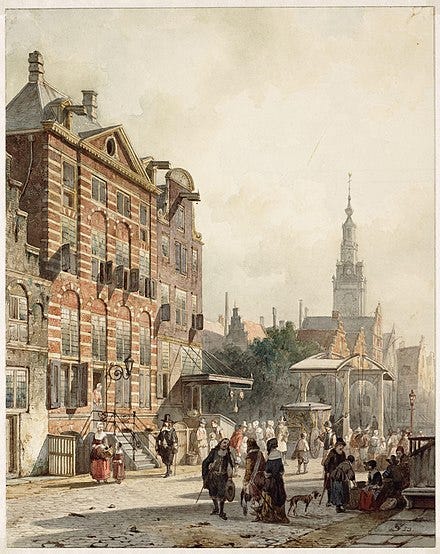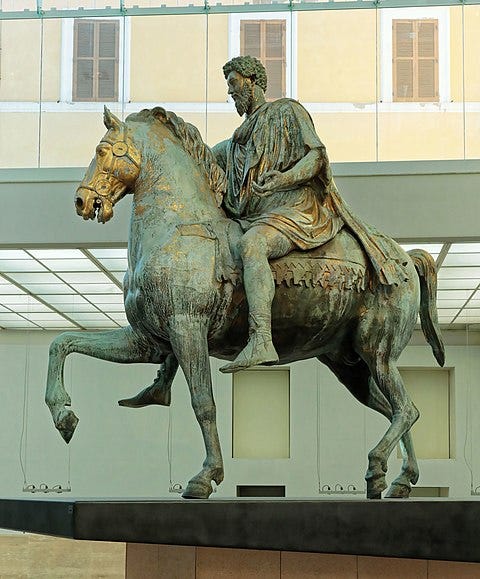In my last post, I told you that two of the arteries serving my tongue hemorrhaged, causing arterial bleeding in my mouth. The high arterial blood pressure instantly and repeatedly filled my mouth with blood. I was at risk of either drowning in my blood or bleeding out.
My wife, a doctor, was the first responder; her lightning action saved my life. Skillful care from paramedics and emergency department staff and a procedure by a team of Interventional Radiologists prevented further bleeding, and I spent several days in an intensive care unit.
Thank you for the support messages in the comments, text, and email. Some of you also told me you felt traumatized by the post; I apologize; I did not mean to hurt you, but the facts are what they are.
Recovering
The good news is that I am recovering. The procedure to stop the bleeding injured and inflamed my mouth and tongue. The inflammation has diminished with time, and I can now swallow emulsified food. The ICU stay disrupted my sleep: it’s impossible to sleep for more than an hour at a time in ICUs. Practicing rigorous insomnia discipline since I got home has helped. The insomnia rules permit me to read paper books—no devices—using a book light. I can also write in a notebook, again using the book light.
I love reading and writing in the depth of the night, in the beauty of the silent dark.
My speech remains impaired. I communicate primarily by text, saving my voice for those closest to me.
So, although I am recovering, I have not returned to a normal life, and I likely never will. But my spirits are good, my energy is increasing, and as you see, I can write.
So much for my medical recovery. What about my spirit? Getting a cancer diagnosis makes you think about your death, but almost dying MAKES YOU THINK ABOUT YOUR DEATH. And about what to do with your remaining life.
I thought again about Marcus Aurelius. He exemplified many of the virtues I need: courage, resolution, and the practical wisdom to discern what is right to do in adverse contexts. Pierre Hadot, Marcus’s biographer and translator, wrote that according to the stoics,
From the point of view of the imminence of death, one thing counts, and one alone: to strive always to have the essential rules of life present in one’s mind.
My near-death experience likewise focused me, again, on getting the most out of the time I have left. I’ve been reading Slow Productivity by the New Yorker writer and computer scientist Cal Newport. Newport rejects our manic productivity culture. Instead, he advocates 1) Doing fewer things, 2) Working at a natural pace, and 3) Obsessing over quality. It sounds obvious, but this hasn’t been how I have lived.
Marcus wrote the Meditations as part of a practice of spiritual disciplines. The goal was to cultivate his essential self as an Inner Citadel (Hadot’s metaphor). Protected within the citadel,
Things cannot touch the soul. They have no access to the soul. They cannot produce our judgments. They are outside of us. They themselves know nothing, and by themselves they affirm nothing. (Marcus Aurelius, Meditations, IV, 3, 10; V, 19; VI, 52; IX, 15)
I think this is wrong. Our essential self is relational. Our relationships with others define us. I am a husband, father, grandfather, brother, member of an extended family, in-law in another extended family, and close friend to many. I am also a professor, research collaborator, co-author, and citizen of two countries. You and I relate as an author and reader. Finally, I am a child of God, an Anglican parishioner, and a disciple of Jesus.
These terms all define relations. You and I live in complex social ecologies; think of them as graphs where the edges are the relationships and persons are the nodes where the edges intersect. I am that intersection of relations.
I want to live in relationality, opening myself up to those who define my essential self. What this will mean in practice, I do not know. Part of being responsive to the other means relaxing and giving up the illusion that you can control things.
Similarly, I need to stop trying to force others to let me do things for myself that, in fact, I cannot do. I need to allow others to help me. Thinking of my wife, perhaps the best thing I can do is to let her take charge, and I will respond with gratitude. I add to her burden by struggling—and then failing—to care for myself.
I recognize there are complex gender issues here, that women often experience unlimited calls on their time and effort, and that justice demands that we develop an ethic of care that limits this. But that’s not a problem I face.
What happens next?
Today, June 4th, I began a new treatment. I am writing this in a chemotherapy unit, where I am getting 8 hours of infusion. This is a Phase 1 clinical trial of a new immunotherapy: all I know about it is its code name. I’m also getting atezolizumab, another recent immunotherapy.
What do I hope for? I’d love to be cured, but that may not be realistic. ‘Phase 1’ roughly means ‘first use in humans.’ Most Phase 1 oncology studies fail. Moreover, I have had radiation, immunotherapy, and two courses of chemotherapy. Each treatment has slowed the tumour progression, but I have never been cancer-free. However, I would be overjoyed if this treatment gave me another year.






Bill, your profound reflections transform suffering into a symbol of resilience and relational depth. Your journey reveals the essence of connection and the courage to embrace help. Thank you for sharing your inner world so openly.
It is good to hear you are doing better!
Yes, I agree Marcus Aurelius' statement is a bit rigid. It sounds like a cell who decided to wall itself off from other tissues within the body, with no osmosis allowed. That is no way for a human being to function. Personally, although I think Marcus Aurelius is amazing when applied to the socio-political sphere, Plato and Protagoras make more sense when applied to the relational. We just can't do without the Greeks! I just read about this intriguing concept Plato came up with, called "methexis." I think if Plato were alive today, he might encourage us to connect and "methexasize" socially and artistically as a way to heal the soul :-)